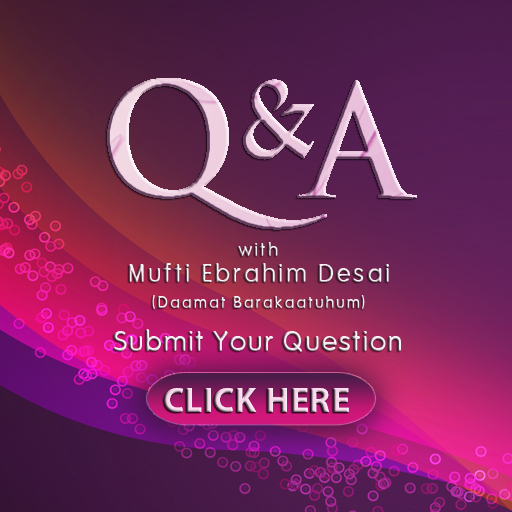
Ramadan is a special time for Muslims all over the world. There are many favours and blessings bestowed upon the creation by Allah Ta’ala during this blessed month. Ramadan is a season of earning ie: the earning of our Rabb’s (Lord) pleasure and the earning of reward for the Aakhirah (Hereafter). Every Believer can vastly improve his or her situation in the Aakhirah through a better understanding of Ramadan. Worship in Ramadan is like that of any other time of the year, however Ramadan has several distinct characteristics which imparts to it superiority over the rest of the year.
The obligatory Saum (Fasting) during the month of Ramadan is 1 of the 5 pillars of Islam. It has been ordained upon those who are mature and of sound health and mental well being. Allah says in the Noble Quran:
“Fasting has been prescribed for you”
Fasting is the abstaining from food, drink and marital intimacy from dawn to dusk. A meal is eaten before dawn which is called Suhoor, and at dusk the meal is called Iftaar. After dusk, the Believer may enjoy these pleasures until the period of dawn sets in yet again, after which the next fast resumes. This goes on for the duration of 1 month. Sisters, I urge you not to miss any fasts unnecessarily during the month of Ramadan, for surely a fast kept during Ramadan is far more superior to that fast kept at any other time of the year.
There is great wisdom and benefit in fasting:
- Saum is a means of attaining the pleasure of Allah. It is a way in which the Believer elevates her own ranks in Jannah (Paradise).Through fasting, the level of piety is increased as the Believer forges a bond with her creator through worship.
- Fasting detoxes the body and allows the body a chance to “re- boot”. The body feels less weighed down, more agile and stronger.
- The conscious Believer keeps away from vices such as backbiting, and develops self restraint through suppressing her desires and guarding her actions.
- The Believer’s heart is softened and develops humility through experiencing the pangs of hunger and thirst. A sense of awareness is created of the plight of the underprivileged. There is compassion and empathy amongst the believers as we begin to understand the challenges of others.
In the preparation for the blessed month of Ramadan, I implore you dear sisters to set realistic and attainable goals for his short space of time. This is so that we have a plan on how to maximise our time during the sacred month, thus allowing us to earn the pleasure of Allah Ta’ala and make us amongst those who are not neglectful. Rasulullah Sallallāhu Alayhi Wasallam had said:
“There is no wisdom equal to good planning”
Rasulullah Sallallāhu Alayhi Wasallam had emphasised that every action is judged by its intention. Therefore before carrying out any action check your niyah (intention). Our intentions should be for the pleasure of Allah Ta’ala and to attain Jannah, not for show or otherwise.
Ramadan is a milestone for the Believers, so let us begin by making istigfaar (seeking forgiveness) for our sins vowing never to repeat the actions in future. Take it 1 day at a time and replace bad habits with good ones such as the music CD in your car can be replaced by the recording of the Glorious Quran. Clear your heart and mind of characteristics and traits such as malice and make peace with your fellow Muslims. Duas are not accepted from those who sever ties and cause division, so go on and make peace. Humble yourself for the pleasure of Allah Ta’ala. Allah Ta’ala says in the Noble Quran:
“Verily Allah Ta’ala does not change the condition of a people, until they change what is in themselves” (Noble Quran 13:11)
Other compulsory actions in Ramadan, apart from Saum are the 5 Fardh daily Salah. Did you know that every Fardh action performed in Ramadan is rewarded 70 times the reward? So by praying your Fardh Salah along with using the Sunnah of Miswak , the rate of “earnings” or reward simply sky rockets!
A nafl (voluntary)action carried out in Ramadan, such as recitation of the Noble Quran or reading nafl salah (such as Tahajjud salah) attains the reward of a Fardh action carried out at any other time during the year. And just imagine the rewards once again, if you combine this with the miswaak. Simply phenomenal! Alhamdulillah! Do you now understand what I mean by “The season of earning”?
Another gift that Allah Ta’ala has given to the Muslims is that of Dua. Never despair or lose hope in the mercy of our Rabb. All Duas are heard by Allah Ta’ala. However, we may see its acceptance in any of the following forms:
- Where Allah Ta’ala accepts your Dua in the form that you asked for it, such as relief from disease or passing an exam.
- Where the Dua is used as a means to avert calamity that was otherwise directed at you.
- Where the Dua is kept for the beautification of our abodes in Paradise.
A special time in Ramadan for the making of Dua is just before Iftaar and during your Tahajjud Salah. Dua is an act of worship, dear sisters.
Charity in Ramadan is greatly encouraged and may be imparted in cash or kind. It can take the form of moving something harmful from the path, offering a kind word, lessening the load of your fellow bondsmen, clothing those who need it, sending esale sawab, Da’wah (Teaching) programmes etc. Charity averts calamity and cools Allah Ta’ala’s anger, so be quick to distribute charity. Do not insult or torment the needy when you are giving them something. Providing water or food to the fasting person at iftaar wins Allah Ta’ala’s pleasure. Give sadaqah and share as much as you can.
Make Shukr (thanks) to the Almighty for everything that you have and for everything that you are. Allah Ta’ala dislikes ungratefulness and says in the Noble Quran that if to those who are grateful, He will give them more. Try to read daily nafl salah and include Salat as Shukr and Salat Istigfar.
Keep your tongue moist with the recitation of the Noble Quran and in making Dhikr of Allah Ta’ala. During your menses continue your ibadah by listening to the Noble Quran, giving sadaqah and immersing yourself in Dhikr.
Enjoy the tranquillity of practicing the Sunnah of Rasulullah Sallallāhu Alayhi Wasallam during Ramadan, be it in using the Miswak, partaking in the Suhoor or the I’tikaf during the last 10 days of Ramadan. Distribute miswaaks and encourage others to adopt a Sunnah. It is important to remember that when a Believer encourages another believer to carry out good and the latter follows, then both of them are rewarded without either of their rewards being decreased in any way. Taraweeh Salah is also a Sunnah and is a distinct characteristic of Ramadan. Search for Laylatul Qadr in the last 10 nights of the month and remember that the one who remains in Ibadah on Laylatul Qadr, all her sins will be forgiven. For the sisters who cannot sit for the Sunnah I’tikaf, why not perform Nafl I’tikaf. When performing Salah, make a niyah (intention) for Nafl I’tikaf. Therefore for the duration of time that you will be sitting on the Musallah (prayer mat) engaged in worship, regardless of the duration of time, you receive the reward of another Fardh action, by carrying out a Nafl action in Ramadan.
The situation of a believer is so beautiful, that when we make a niyah to carry out good, reward is already written for us and when we carry out the action, then we are again rewarded. So every morning and evening make Dua for the acceptance of your good deeds solely for Allah Ta’ala’s pleasure and make shukr for the opportunity to have had more time in Allah Ta’ala’s path. Subhan Allah! Sisters, the heart is a vessel which must be filled with something. It cannot remain empty. It will either be filled with good or bad, beneficial or detrimental. Empty out some of the useless “stuff” and fill it with our daily worship, which we shall plan for and Insha’Allah keep to.
Written By: Sister Ayesha Vadia Moola for Idealwoman.org




One Comment
Leave a Reply